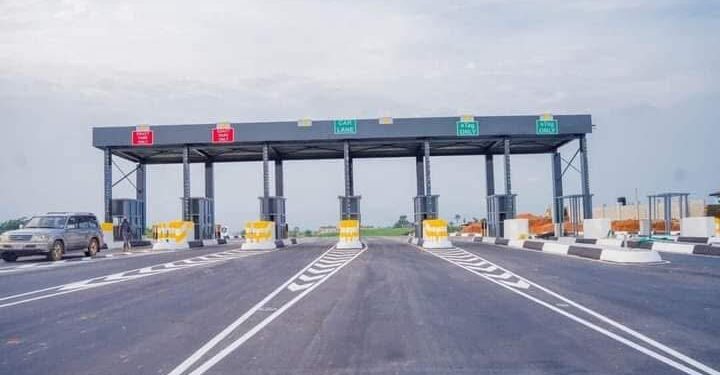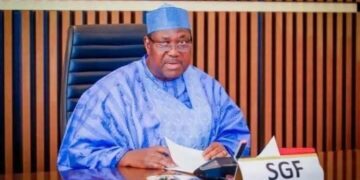The reintroduction of tolling on some selected expressways kicked off yesterday on the Abuja-Keffi-Akwanga-Lafia-Makurdi Highway.
The 227.2-kilometer road is among the nine expressways scheduled for tolling by the Federal Government.
It was rehabilitated through a Preferential Credit Loan from the China Exim Bank.
Other roads listed for tolling include the Lagos-Ibadan Expressway, Second Niger Bridge, Abuja-Kano Road and Makurdi-9th Mile Road.
The kick-off came on a day the Federal Government gave the contractors handling the Lagos-Ibadan Expressway an April deadline.
It threatened to terminate the contracts if they failed to meet the ultimatum.
Works Minister David Umahi, who flagged off the tolling, said the toll order for the roads has been gazetted.
According to him, saloon cars will pay N500; sports utility vehicles/jeeps, N800; minibuses N1,000 and multi-axle (articulated) vehicles, N1,600.
Frequent road users like commercial light vehicles, as defined under the Federal Highway Act, will enjoy a 50 per cent discount.
Authorised bicycles, pedal cycles, tricycles, motorcycles and other modes of two or three-wheeled transport used by mainly disadvantaged populations will be offered a 100 per cent discount.
The loan agreement provides that upon completion, the road would be tolled, operated and maintained by a privately run entity (concessionaire).
“The revenue collected from the operation (deducting the operation cost) shall be preferentially used for the loan repayment to the China EXIM Bank,” the contractual agreement states.
The nine roads listed for concessions are under Phase I of the Highways Development and Management Initiative (HDMI).
Umahi said the other roads under the HDMI arrangement would be launched in the coming months.
The minister noted that under the President Muhammadu Buhari-led administration, his ministry executed a 25-year Toll, Operate & Maintain Concession Agreement with China Harbour Operations and Maintenance Company Ltd (CHOMC) in partnership with Catamaran Nigeria Ltd under the HDMI Phase I in 2023.
He described the kick-off of the tolling system as a landmark in the nation’s infrastructure development.
Umahi stressed that the road corridor is a crucial transit route for both the economic and social activities of the central and northern regions.
Highlighting the road’s vital role in economic, social, and strategic development, he said: “It serves as a key artery for trade, mobility, and national security while contributing to the growth of infrastructure, urbanisation, and national cohesion.
“In the coming months, the Federal Government will continue with the launching and operationalisation of the remaining ones located across the six geo-political zones of the country.
“This initiative has opened a new chapter in the history of Nigeria as it gives the Federal Government the opportunity to overcome bad roads.
“Tolling operations is a pivotal step towards the realisation of our vision for a more efficient, sustainable and well-maintained road transport system for our beloved country.
“Today, we embark on a journey to ensure that our infrastructure is preserved for the benefit of present and future generations.
“The collection of tolls will generate much-needed revenue for the maintenance and expansion of our roads.
“This aligns with the priorities of President Bola Ahmed Tinubu’s Renewed Hope Agenda, which is committed to building a robust, interconnected infrastructure that promotes ease of movement that bolsters the economy, creates a self-sustaining and resilient transport network, supports economic growth and job creation, and develops both urban and rural areas across Nigeria.”
The minister urged Nigerians to embrace the initiative.
“I call on us all to continue to support this government policy while ensuring that the ultimate goal of having a transportation system that is modern, safe, and capable of meeting the needs of our growing nation is achieved,” he said.

Address: No 5 Ejembi Eko Street, New GRA, Makurdi, Benue State, Nigeria





